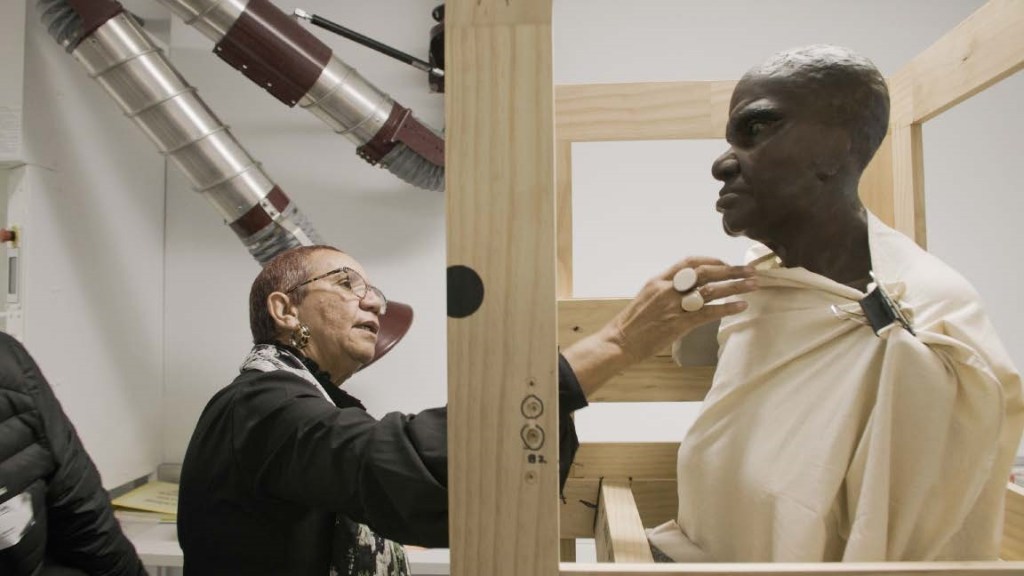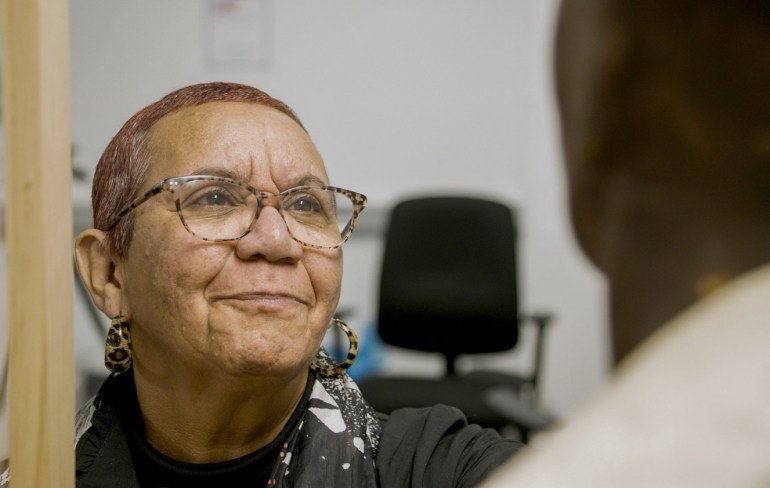Filmmaker Daniel King was in his early 20s when he visited the Australian Museum with his uncle.
Unsure of what they were there to see, he was led down into the rooms that carried Indigenous artefacts to a statue with a white sheet over it. Underneath was his great-great-grandmother.
He would later learn that the statue, of Nellie Bungil Walker, was one of three of ‘full blood’ Aboriginal people commissioned by the museum a century ago to showcase what the 1925 Australian Census had described as a “dying race”. The sculptures were displayed in a glass case, with no mention of their names, stories, or true identity.
King, who was just starting his film and television career at the time, said he knew the “surreal experience” was something he would return to one day.
“I just thought it was really quite special,” he told IF.
“I knew there was something there; I didn’t know exactly what it was at the time but I knew there was something quite unique about the story.”
Two decades on, King has realised his vision in Her Name is Nanny Nellie, a feature documentary he wrote and directed that follows his mother and Walker’s great-granddaughter, Irene Ridgeway, as she retraces Nellie’s life and understands her times, while also informing the other statue’s descendants of the depictions.
The film was produced by Ben Pederick and Andrew Arbuthnot, with Charlotte Seymour executive producing, and contributions from DOP Kathryn Milliss, editor Johanna Scott, composer Claire Deak, and post-production coordinator Claire Perry.
An NITV commission, it received financial support from Screen Australia, VicScreen, Adelaide Film Festival (AFF), and The Post Lounge.
King, who previously helmed 2020’s Trading Cultures, began work on the project around 2019 after receiving development funding from Screen Australia, conducting research trips between lockdowns, before shooting in blocks across a two-year period up until early 2023.

In July, the Australian Museum unveiled a restored statue of Nanny Nellie, carried out in consultation with her descendants, as part of a new temporary display in its First Nations gallery, Bayala Nura.
King said the crew began to edit the film two-thirds of the way through shooting in order to align the production with the restoration process.
“We basically gave ourselves the opportunity to create scenes that would help tell the story in a better way, which ended up being quite efficient,” he said.
King paid tribute to Australian Museum First Nations director Laura McBride and First Nations collections manager Mariko Smith, who both feature in the film for going “above and beyond” in their support for the project.
“They truly believed in what the story represented about reclaiming narratives because that’s essentially the work they’re trying to do as well with their collection,” he said.
“[They want to] reconnect items within their collection back to families but also taking ownership of our own narratives and history and tell it through our perspective, as opposed to from somebody else’s perspective.”
The Indigenous perspective was a topic of much debate in the weeks before the film’s premiere at the AFF last Sunday, as campaigners on both sides of the now failed Voice to Parliament referendum made their case.
King said expected his documentary to resonate differently from what it would have if he had made it after first coming across the statue 20 years ago.
“I was a Yes voter and in looking for reasons why the vote didn’t get up, a lot of what is coming out of the media was that there was misinformation or a lack of information,” he said.
“I think this sits right in the pocket in terms of understanding why we wanted constitutional recognition. Hopefully, it will educate people, but not so much by hitting them over the head with facts and figures. because it is an intimate journey of my mother but it’s also about understanding and empathising with our experiences being an Indigenous person living in Australia.”
Her Name is Nanny Nellie will be shown at 11.30am on Sunday, October 29 at the Palace Nova Eastend as part of AFF. The documentary will air on NITV next year.


